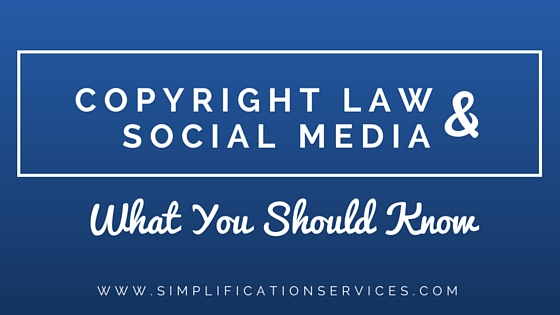There’s no denying the fact that social media is an invaluable tool for promoting your product, service or brand. With nearly 3 out of 4 U.S. adults using some type of social media network, business owners can use this platform to increase sales while generating greater brand recognition in the process. But you should think twice before uploading content to social media, because copyright laws surrounding these platforms are murky at best.
Why You Should Follow Copyright Laws
It’s important for business owners and entrepreneurs to abide by copyright laws. Aside from the moral aspect, publishing content created and/or owned by another person or entity could place you at risk for legal action. If the owner finds out that you’ve been posting his or her content with their consent, they may sue you for copyright infringement. Problems such as these are easily avoided, however, by following some basic precautions when uploading content to social media.
Only Upload Content that YOU Own
Images are among the most commonly shared type of content on Facebook. However, you should only upload images that you own. Some users assume that it’s okay to upload Creative Commons images to Facebook and other social media networks. While Creative Commons gives “limited use” rights, it does not give exclusive use rights. Long story short, you generally cannot upload Creative Commons images to social media.
Furthermore, images uploaded to Facebook become the property of Facebook once uploaded. This was revealed in an article published by PlagiarismToday, in which the author cited an email from Facebook:
“…once something is posted or uploaded onto Facebook it becomes Facebook’s property,” wrote Facebook in the email. The social media giant goes on to say that if the original owner uploaded a photo to Facebook and then other users uploaded it to their profiles and pages, there’s nothing they can do about it.
Tips to Prevent Copyright Headaches on Social Media
- While you typically cannot upload other users’ photos to your own social media profiles and pages, you can still “share” them without fear of running into copyright issues.
- Public domain images can be uploaded to social media.
- Refer to each social media network’s terms of use for more information on copyright.
- If you don’t want other people using your content, do not publish it on social media.
- If you receive a Digital Millennium Copyright Act (DMCA) notice asking for the removal of content, go ahead and remove the respective content.


Leave a Reply